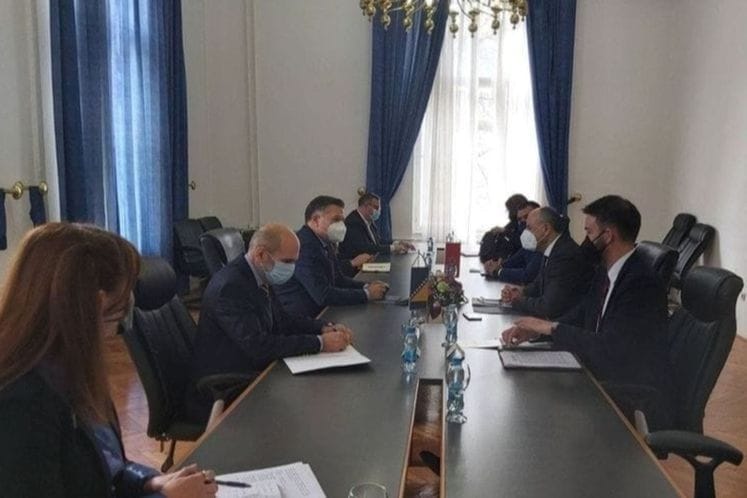- Government of Montenegro
Ministry of Foreign Affairs Political consultations on Euro-Atlantic cooperati...
Political consultations on Euro-Atlantic cooperation between ministries of foreign affairs of Montenegro and BiH have been held

It is of strategic importance to maintain vision of the European future of the Western Balkans and its European and Euro-Atlantic orientation – as it has been appraised today in Sarajevo during political consultations between ministries of foreign affairs of Montenegro and BiH.
Montenegrin delegation consisted of Secretary of State in the Ministry of Foreign Affairs, Ambassador Ljubomir Mišurović, Director General for the NATO and Security Policy Vladimir Vučinić and Director of Department for the NATO Dragana Vešović. Head of BiH delegation was Deputy Minister of Foreign Affairs and Chair of the Commission for Cooperation with the NATO of the Bosnia and Herzegovina Josip Brkić.
State Secretary Mišurović conveyed that Montenegro is devoted to the strengthening of regional cooperation and good neighborhood relations, so that pays special attention to the exchange of experience and mutual support of countries of the region within European and Euro-Atlantic integrations. He emphasized that exactly these processes are strong pillar of democratic reforms and basis for long-term stability and prosperity.
In the focus of consultations was also cooperation within Euro-Atlantic agenda and providing expert and political support to the BiH. Montenegrin delegation expressed the pleasure with recently achieved agreement on forming the Commission for the Cooperation with the NATO, that should contribute to faster implementation of obligations from Program of reforms, that includes political and economic, safety and defense, as well as legal topics.
Experiences from the accession process were exchanged, particularly in the regard to the public diplomacy, partnerships cooperation instruments, security regional initiatives etc. Regional and global politic and safety movements were also discussed.
It has been jointly appraised that such kind of consultations largely assists to the more effective exchange of experience and good practice examples, whereas it contributes to the progress in the implementation of reforms within the European and Euro-Atlantic integrations.
